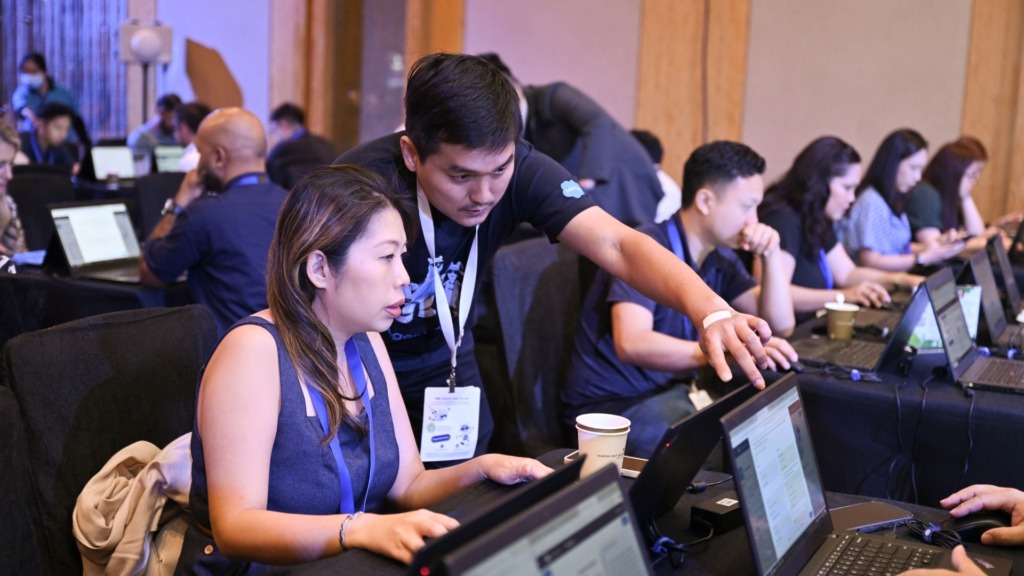Salesforce unveils research on digital labour and commits to training 7,500 AI-skilled workers in ASEAN
Salesforce research shows APAC HR leaders expect 450% growth in AI agents by 2027 and plan to reskill 21% of the workforce.

At the Agentforce World Tour Singapore, Salesforce unveiled new research that highlights the strategic shift towards digital labour across Asia Pacific. The study shows that HR leaders are preparing for a dramatic transformation, with agentic AI adoption expected to grow by 450% by 2027. As a result, companies anticipate a 37% increase in productivity and plan to redeploy 21% of their workforce.
To support this transition, Salesforce announced its commitment to training 7,500 Agentblazer Champions in ASEAN next year. These individuals will receive hands-on training to build autonomous agents and strengthen their AI skillsets. Training will be delivered through partnerships with government bodies, workforce development agencies, higher education institutions, and Trailhead, Salesforce’s free learning platform.
Earlier this year, Salesforce pledged US$1 billion over five years to support Singapore’s digital growth under the National AI Strategy 2.0. The funding aims to expand Agentforce adoption locally and equip businesses with digital labour capabilities to boost productivity and innovation.
Sujith Abraham, Senior Vice President and General Manager of Salesforce ASEAN, said, “The rise of agentic AI represents a pivotal moment for ASEAN businesses, offering not just efficiency gains but a fundamental reimagining of organisational capacity. For Singapore organisations struggling to fill critical labour gaps amid slowing labour force growth, Agentforce offers a unified platform for enterprises to unlock a new labour model, allowing them to boost productivity, reduce costs and drive new levels of innovation and growth.”
Industry leaders weigh in on the impact of agentic AI
The event also featured leaders from various sectors sharing how AI is already reshaping their operations. Panasonic demonstrated how its service team uses Agentforce to triage customer requests and recommend solutions more efficiently. Companies such as Grab, FairPrice Group, Kaplan, and Singapore Airlines also shared how Salesforce’s integrated platform has supported their digital transformation.
Mushi Luke, Chief Intelligence Officer at HEPMIL Media Group, spoke about the growing role of AI in content creation and management across Southeast Asia. He said, “AI can drive the most impact in processes that are humanly impossible to solve; at scale, at high availability, 24/7.” As HEPMIL prepares to implement agentic workflows, Luke emphasised investing not only in software and hardware but also in “Heartware” and “Brainware”—fostering the right mindsets and reskilling staff to thrive in a tech-driven landscape.
Nicholas Lee, Chair of SGTech, described the findings as a wake-up call for businesses. “The rapid rise of Agentic AI, as highlighted by Salesforce, marks a turning point for Singapore. It offers a powerful opportunity to address our labour constraints and boost productivity. SGTech believes proactive upskilling is crucial for our businesses to leverage and complement this technology.”
Tan Shui-Min, Chief Information Technology Officer at the National University of Singapore, noted how the university has embraced AI since 2018. She highlighted the AI-Know platform, which provides access to various AI tools, and shared how it has enhanced productivity and decision-making. “What excites us most is the cultural shift underway. We remain focused on helping the NUS community embrace AI meaningfully, with the right tools, mindset, and skills to thrive in this new era,” she said.
Research findings reveal major shift in workforce planning

Salesforce’s research uncovered several key insights. Across APAC, 93% of Chief Human Resource Officers (CHROs) believe that integrating digital labour alongside human employees will soon be a central part of their role. Currently, only 10% of organisations have fully adopted agentic AI, but CHROs expect this figure to rise to 55% by 2027. Once implemented, the technology is projected to deliver a 25% reduction in labour costs, equivalent to US$14,558 in annual savings per employee based on OECD wage data.
With this shift, 83% of CHROs believe AI agents will reshape organisational structures. Most expect to retain 60% of staff in existing roles while redeploying 21% to new positions better aligned with the evolving work environment. Nearly nine in ten leaders see internal reskilling and redeployment as more cost-effective than hiring externally, with 86% already reskilling or planning to do so.
Soft skills are expected to grow in importance. Around 80% of HR leaders said AI agents will increase demand for abilities like collaboration, creative thinking, and relationship-building. Departments such as customer service, operations, and finance are likely to shrink as businesses shift focus towards strategic and high-impact roles.
Despite the urgency, only 41% of companies have communicated the potential impact of AI agents to their staff. CHROs are prioritising near-term efforts in IT, R&D, and sales, as they prepare employees to transition into technical and leadership roles. Notably, 67% of leaders believe digital labour will open up career paths for junior employees, while 62% expect human staff to manage AI agents within five years.
The Agentforce World Tour Singapore welcomed over 2,000 participants, offering keynote sessions, live demos, and industry workshops designed to prepare businesses for the AI-powered future of work.
















